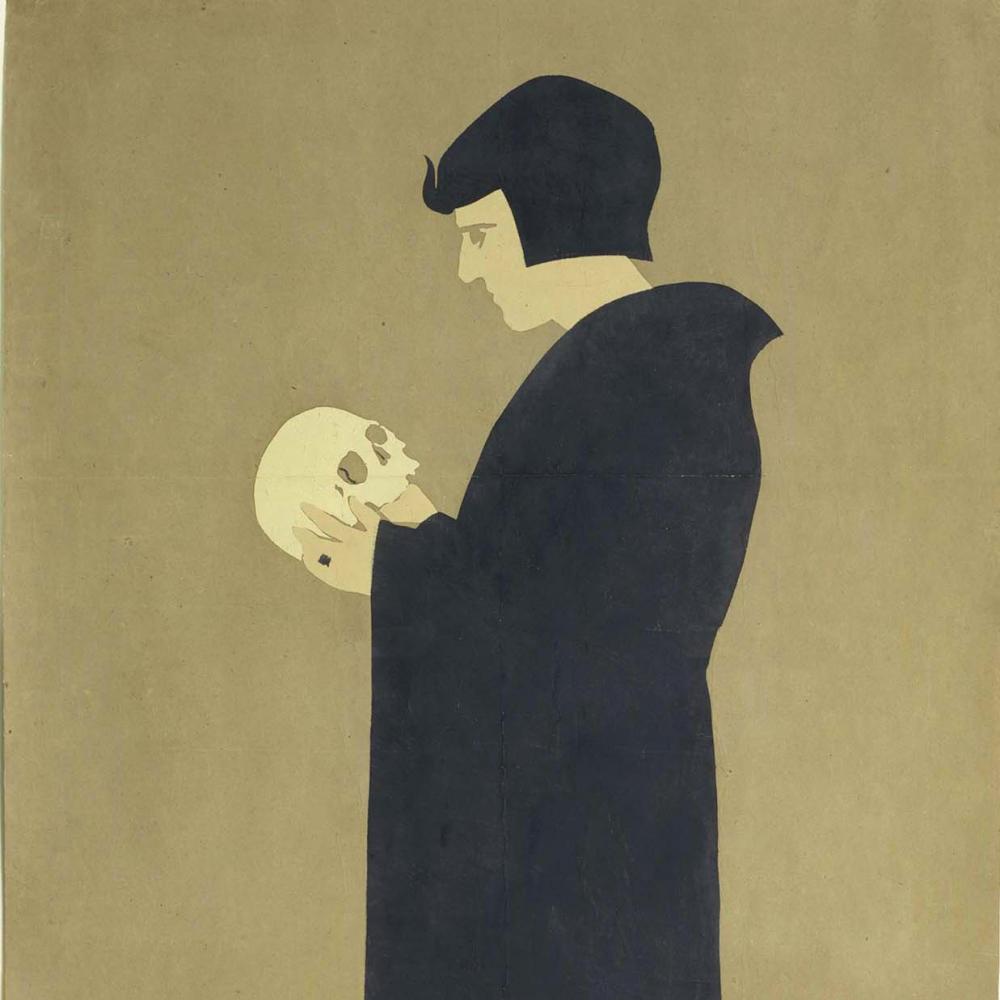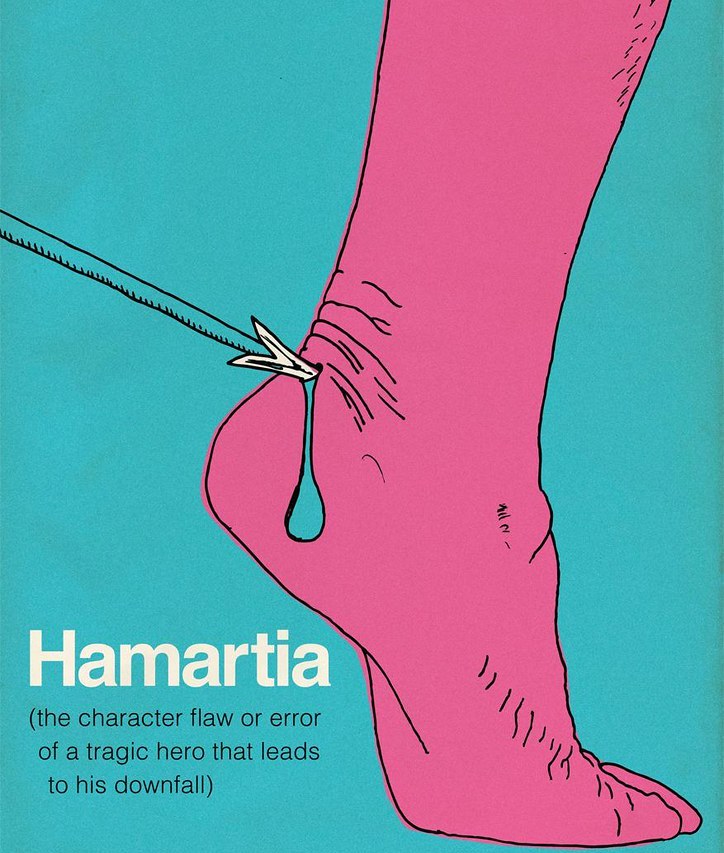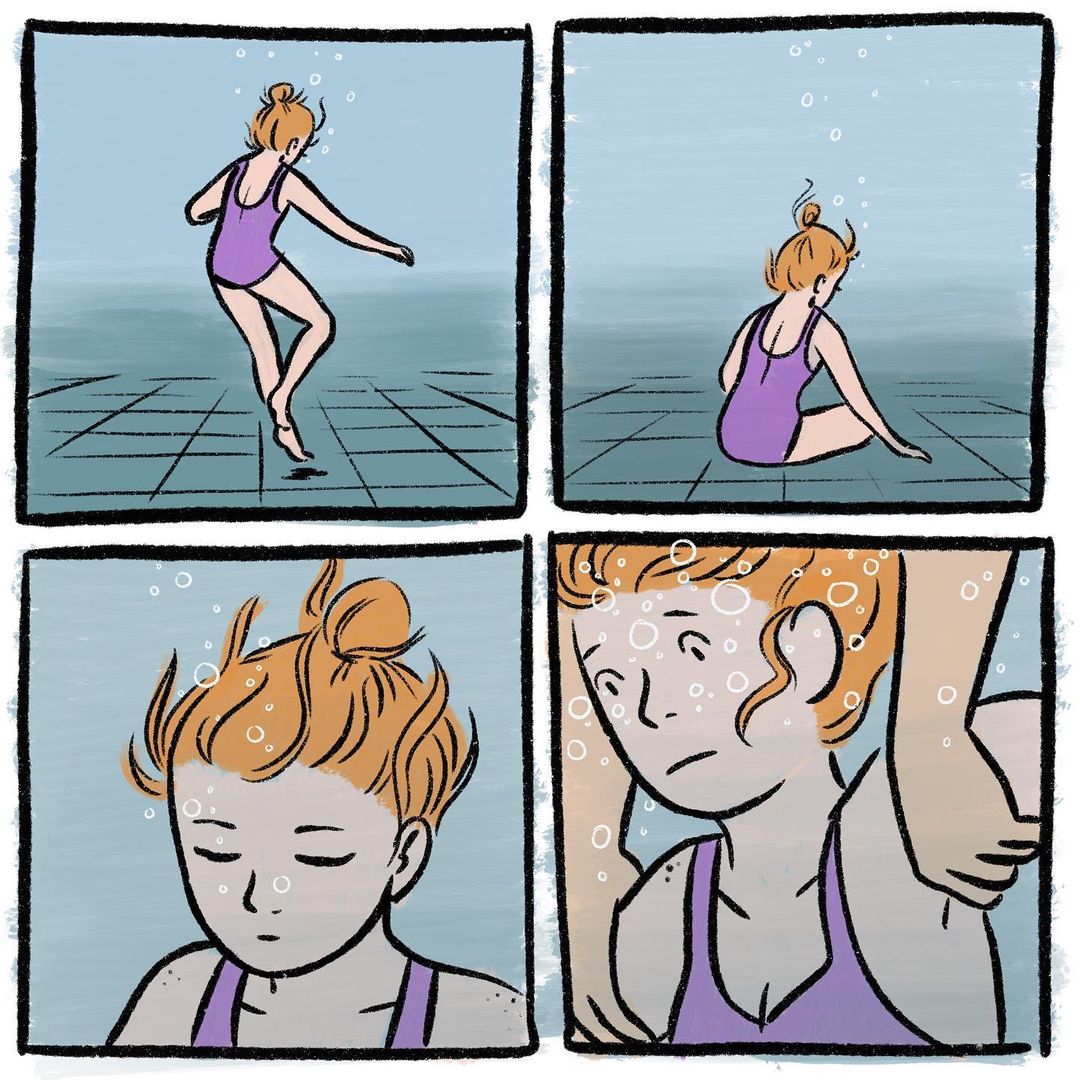Your Tragic Flaw

A certain lecture on Hamlet that I attended years ago, during the first year of my graduation is distinctly etched in my memory. Or so I realised, after experiencing what is termed as, a madeleine de Proust.
It was a quiet morning and my professor had seated herself atop a table, the winter sun was faintly shining through the window behind her, making her seem almost Godlike. She then asked, with a curious yet caustic tone, “What do you think your tragic flaw is?
According to the great Mr Aristotle, a tragic flaw or Hamartia is a character flaw of a tragic hero which ultimately leads to his ignominy or death. However, they were all good, respectable men and more often than not, were ahead of their peers and yet they failed. It wasn’t because of immoral intentions or unfortunate circumstances, just a singular character trait that GPSed them straight to their downfall.

Hamlet’s hamartia was his incapability to act and/or his overthinking, Oedipus’s was his curiosity, Macbeth’s was his ambition, Devdas was entitled, the protagonist’s from Whiplash and Black Swan, both wanted to achieve perfection.
Unsuitably enough, these traits don’t quite fit into the category of flaws, now, do they? Or worse, most of us have these traits as well. Which implies, had we been a tragic hero, we might have been long dead for something as trivial as being too focused.
Naturally so, the question we were asked had put me in an awkward space. I never had had the chance to wonder what my tragic flaw was. Initially, I thought it would be similar to that of Hamlet’s. However, I did not have any uncles to kill and so it didn’t ultimately matter if I delayed my actions.
Most of my classmates who despised interacting in an early morning lecture said they had anger issues, even the polite and quiet ones.
When it was finally my turn, I impulsively told her that I tend to believe everything I’m told. “You’re naïve? You don’t seem naïve”, she said. I believed that too.
Years later, on a Sunday, I was reminded of this particular lecture again. Those days, in an attempt to stay fit, I had enrolled myself in a swimming club. And the pool on Sundays would be a lot more crowded than on weekdays. Crowded especially, with middle-aged working men whose schedules only allowed them to swim on Sundays. So, all I did on Sundays was to go to the very bottom of the pool and park myself there, over and over again. It almost felt meditative, sometimes even morbid. After the third round, as I got back to the surface, a haboo came flying and landed itself in front of me.

Haaboo is the Bengali word for cotton seeds that travel through the air during these months because of wind pollination. The dandelions? I must’ve seen one after ages, they’ve disappeared too, like the hummingbirds.
As a child, I was greatly fascinated by them. Years before I was taught about wind pollination, my sister gave me a very elaborate and made-up explanation for it, as she did for most occurrences in nature.
She told me that haaboos were souls of those from our previous birth, who would come around, to check upon us. I believed her, as I always did. Just like when she told me, she was in charge of the winds and that whenever she clapped her hands, the leaves would hear her, and clap back, resulting in the wind. She demonstrated it to me several times and somehow, it worked every time. I am still uncertain, how. But I believed it, for an embarrassingly long period of my life.
And when she told me, she was Bhagat Singh in her previous birth, I believed that too. More so when she screamed “Inqilab Zindabad” in her sleep when she was six years old.
I, on the other hand, thought I was a rat in my previous birth because a questionably edgy children’s book told me so. Everyone born in 1996, was a rat in their previous birth, or so it said. And I agreed.
And as for the haboo that had landed itself near me, it felt as if an old childhood friend or probably someone from my previous birth, came back to ask me, to stop meditating at the bottom of the pool. Presumably, because it saw through what I was trying to do. It must’ve been my oldest friend, one who was a fan of Shahrukh Khan and owned a brown leather jacket that he said was Shahrukh Khan’s original jacket from the movie, Josh. I believed that too, even though it was highly unlikely that Mr. Khan would fit into a six-year old’s jacket.
I still believe whatever I’m told with blind faith. Not too long ago, my grandmother told me about a massive ground in Calcutta, where people who want to kill themselves, go lie down and eventually die. Although, I’ve never seen nor heard of its existence, whenever I’ve visited the city.
I believe it when someone tells me they love me or if they tell me I’m boring. I believed Morgan Freeman when he said, that it’s a possibility that even the aliens believe in God, I believe my friend when he tells me that Hitler comes to him in his dreams and asks him to conduct another genocide and when my other friend tells me that we will probably never find someone who loves us back.
Often, I also find myself listening in to nature. Once a tree told me how the only way to become a tree is not wanting to be one or when the ocean and the moon both told me they were courting.
In my defence, it’s not that I don’t have opinions of my own, I just don’t see why I shouldn’t believe everyone around me when they clearly don’t have any ulterior motives. Unfortunately though, when someone does have an ulterior motive, I can’t see through them and land myself in painful situations. Hopefully, my flaw won’t have me and my entire family dead in less than a day, if it ever leads me to a disaster.
Now, you can think about what your hamartia might be and come up with an explanation for your failures. Just make sure it isn’t anger issues.
p.s. there is, however, one thing I don’t believe; that my hair looks better, straight.
